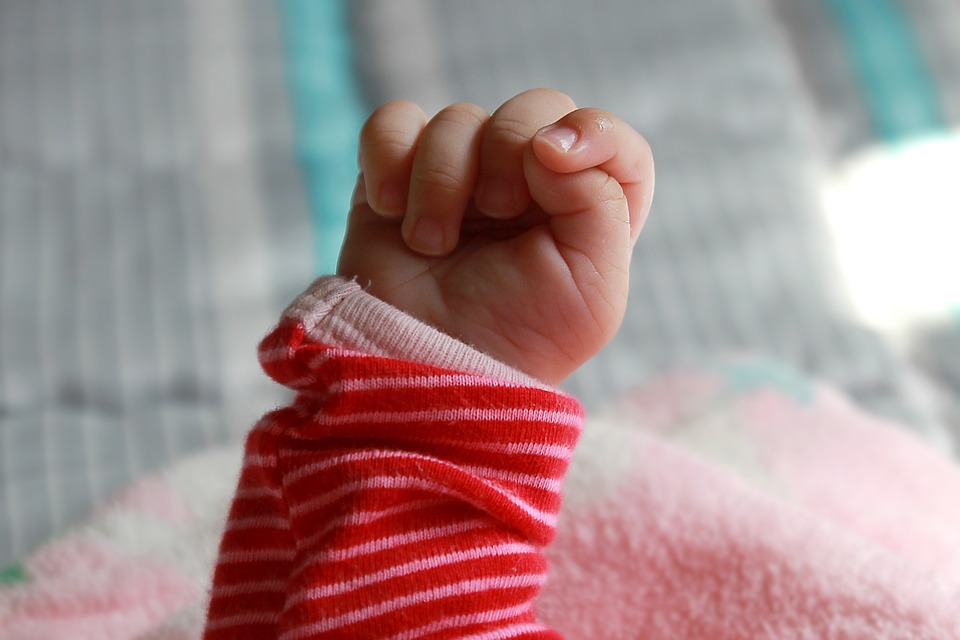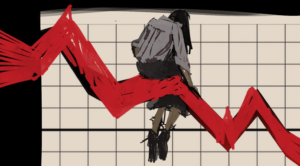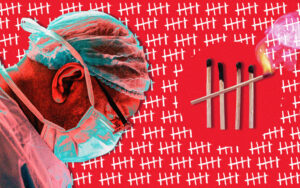In the wake of the announcement that Cecile Richards will be coming to Georgetown to speak at the behest of the Lecture Fund it seems that the abortion debate has once again come to rock our campus. I think that this presents a good opportunity to once more explain that the Catholic opposition to Planned Parenthood’s commitment to providing abortions is based on sound reasoning and sincerely held beliefs on the intrinsic evil of abortions.
This opposition is based entirely upon one fundamental truth: that each human being has a profound and inviolable dignity attached to it. The Catechism of the Catholic Church in turn teaches that the right to life regardless of situation and condition is the most basic building block of human dignity, for it is the one upon which all other human rights are placed. Because of this the Church clearly teaches, “Human life must be respected and protected absolutely from the moment of conception. From the first moment of his existence, a human being must be recognized as having the rights of a person – among which is the inviolable right of every innocent being to life” (CCC: 2270).
This is not inherently a religious claim, but rather a logical one. Many pro-choice supporters argue that the fetus is not a human being, but instead merely a potential human being. Even after conceding this point, the church would still be unable to accept abortion. This is because to Christians, one of the most fundamental features of human nature is our potential to develop.
Every human being is a developing human person. We are all still in progress on the way to becoming the full persons that we are meant to be, and we will never stop that process of becoming more truly human, from the point of conception up to the day that we die.
Some of us might be further along in the process of development than others, and all of us reading this are further along than a fetus, but in some ways that only means that the unborn child’s potential to grow is all the more precious for that fact. Their life is a clean slate full of the marvelous potential to grow, to love, to make mistakes and learn from them. Far from making their lives less valuable (or even disposable) the pure unblemished potentiality of the human fetus can only magnify its value.
This is why infanticide is universally considered such an unthinkable act. When the life of a child is taken, not only has an innocent and defenseless person been killed, but so has that person who possesses the greatest potential to yet experience the fullness of life. Murder is a form of robbery, in fact it is the worst form, and the earlier in life one is killed, the greater the theft.
This logical conclusion is only further strengthened by our religious convictions, which hold that every human life was given an incalculable value by God’s decision to become fully human in the form of Jesus. To Christians, scripture is explicit that this dignity is conferred onto all human beings from the point of conception to the point of death:“Your eyes saw my unformed substance; in your book were written, every one of them, the days that were formed for me, when as yet there was none of them” (Psalm 139:16 ESV.) Every human being is known and loved by God even in their most unformed state, and every day of our lives must be treated as a sacred gift.
Moreover, some Christians believe that life is sacred from the point of conception because Christ himself was conceived and went through all of the stages of natural human development, from zygote to embryo to fetus and finally to birth. In his miraculous conception Christ sanctified every one of these stages of development. Just as mankind is holy because God at one point in history became a man, so too are unborn children holy because at some point God was an unborn child.
This is not to say that the plight of the mothers should be ignored. The mothers’ lives are sacred for the very same reason that the lives of the unborn are protected, because every human being has a deep intrinsic value and should never be treated as merely a means towards an end. This is why the Georgetown pro-life community so strongly supports organizations like the Northwest Center, which provides valuable services free of charge to vulnerable mothers who make the difficult decision to keep their children.
The ultimate goal of the Pro-Life movement should not simply be to ban abortion, because we all know that simply outlawing the practice will not stop it from occurring, and doing so would only make abortion more dangerous for both the mother and the child. The true vision is a world in which every child is given a chance to live and where abortion is seen as unnecessary and wasteful.
Many members of the Pro-Life movement believe that whenever possible the decision should not be a choice between the wellbeing of mother or the life of the infant. In some ways this is a harder path, one that places a larger responsibility on all of society to take care of those who our culture considers inconvenient instead of simply throwing them away.
With all of this in mind, maybe we can put aside some of the name-calling, and realize that, those of us who are objecting to the presence of Ms. Richards on campus aren’t doing so out of malice, or ignorance, but out of deeply held and well-reasoned convictions. The work that Planned Parenthood does promoting and carrying out abortions is morally unacceptable. Hopefully this article could be a first step towards the creation of a respectful and productive discussion on the Hilltop in the weeks leading up to Ms. Richards’ visit.





